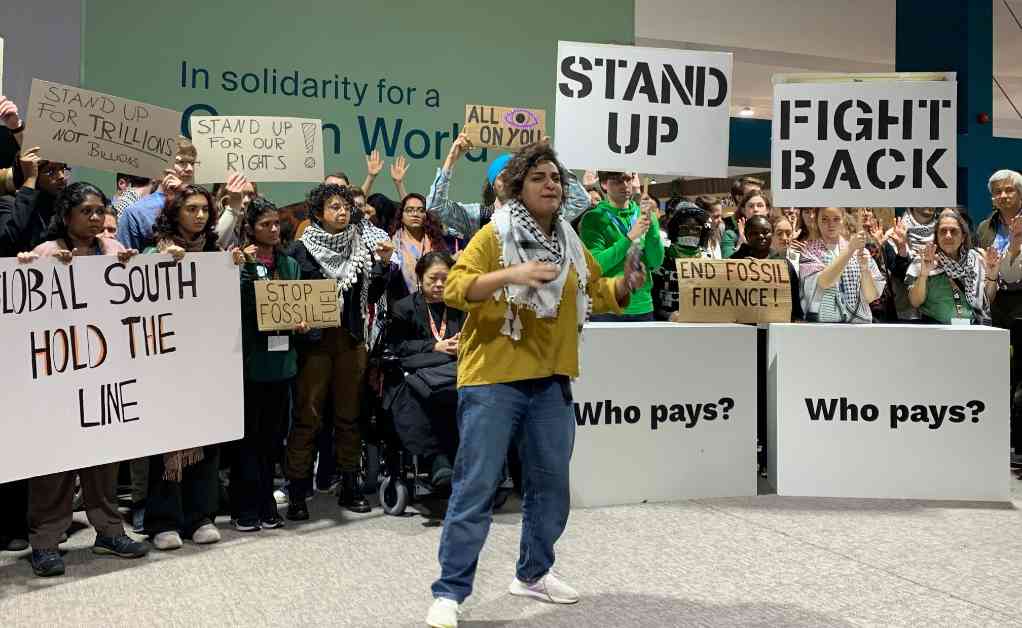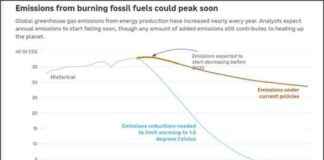Adoption of Carbon Market Rules at COP29
After days of intense negotiations, COP29 finally approved a much-anticipated rulebook for carbon markets, marking a significant milestone in the fight against climate change. The decision, made around 9pm local time on Saturday, came after finance talks extended into overtime, highlighting the complexities and challenges faced by global leaders in addressing climate issues.
Countries greenlighted a set of rules that will govern a global carbon market established under the Paris Agreement, a process that has been in the works for nearly a decade. The rulebook outlines the creation of two types of markets: Article 6.2 for bilateral carbon trading between countries and Article 6.4 for a global crediting mechanism for the sale of emissions reductions.
COP29 President Mukhtar Babayev hailed the decision as a crucial step towards maintaining the 1.5-degree target, emphasizing the importance of the rules in achieving climate goals. However, experts have raised concerns about the integrity of the adopted rules, particularly in relation to the potential loopholes that could lead to the sale of low-quality carbon credits.
Vulnerable Nations Protest Over Finance Talks
Amid the finance talks, tensions rose as vulnerable nations, including the Least Developed Countries (LDCs) and Small Island Developing States (SIDS), staged a temporary walkout in protest. The disagreement stemmed from a new finance text that proposed a climate finance goal of $300 billion per year by 2035, a figure that fell short of developing countries’ expectations.
The LDCs and SIDS expressed dissatisfaction with the lack of ambition in the proposed text, highlighting the need for minimum finance allocations and sub-goals for adaptation and loss and damage. The walkout underscored the growing divide between developed and developing nations on crucial financial commitments needed to address climate challenges.
Negotiations hit a standstill as the groups gathered separately to strategize their next steps, reflecting the complex dynamics at play within the COP29 discussions. While the possibility of reaching an agreement remains, the urgency for decisive action and meaningful collaboration is evident in the face of escalating climate threats.
US Faces Accusations of Evading Financial Obligations
Climate justice campaigners raised alarm over the United States’ alleged attempts to circumvent its financial responsibilities under the Paris Agreement. The latest draft text on the post-2025 climate finance goal suggested a voluntary approach to finance contributions, sparking concerns about developed countries shirking their legal obligations to support climate action in developing nations.
Activists pointed out discrepancies in the interpretation of the agreement’s provisions, with the US delegation facing scrutiny for advocating a weakened stance on climate finance commitments. The ongoing debate underscores the complexities of climate negotiations and the need for transparent and equitable financial frameworks to address global challenges effectively.
Rumors of Increased Climate Finance Goal
As discussions intensified at COP29, reports emerged of developed countries considering a raise in the core climate finance goal from $250 billion to $300 billion annually by 2035. The potential adjustment follows mounting pressure from developing countries for greater financial support to combat climate change and its impacts.
While the proposed increase signals a step towards meeting developing nations’ demands, concerns persist about the adequacy of the revised figure in addressing the scale of climate challenges. The evolving nature of the negotiations underscores the delicate balance between competing interests and the urgent need for collaborative solutions to achieve meaningful progress on climate action.














